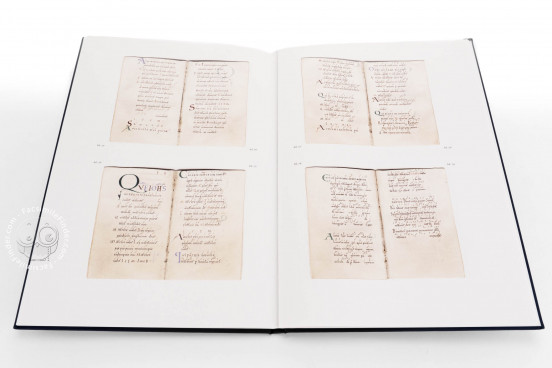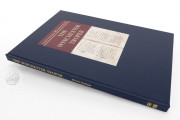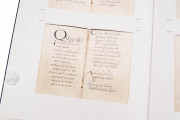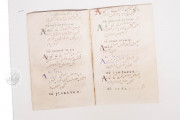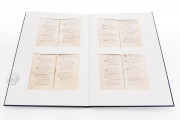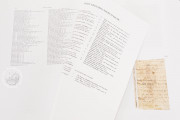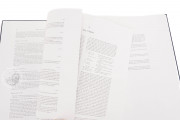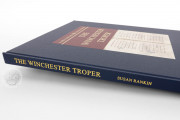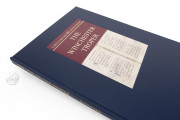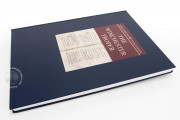The Winchester Troper contains the only notated repertory of Christian liturgical polyphonic music to survive from before the year 1100. Some of its music may have been composed by Wulfstan the Cantor, who was active ca. 1000 and was well known in his own time and since as the author of saints' lives. The original text and music of the manuscript were written around 1020-1040, with additions made over the course of the following decades. Written and used at the Old Minster of Winchester, one of early England's monastic cathedrals, it is not only an important witness to preconquest music in England but also a handsome book.
The small volume contains Alleluias with verses, tropes (interpolated text and music) to chants of the Mass, a tonary (a kind of index to chant melodies), sequences (melodies without text) and proses (existing melodies provided with new text) for the Mass, and polyphonic organa (plainchant melodies with at least one harmonizing vocal line) for the Mass and the Divine Office. To this core, a myriad of additional chants was appended.
A Cantor's Manuscript
The Winchester Troper is a book made for the use of the cantor, the member of a Benedictine monastic community responsible for overseeing the performance of the liturgy. Its small size meant that the cantor could consult it easily in preparing the choir for services.
The text—mostly in Latin, but with some Greek in transliteration—is written in Caroline Minuscule, with the first lines of many pieces in Rustic Capitals. Each segment of chant is introduced by a pen-drawn colored initial in red, blue, or green. There are two larger initials in gold leaf (fols. 2v and 10r).
Local Interest
The Winchester Troper includes liturgical music for the major feasts of the Western Church, but local saints are also well represented. The book includes chants for the feasts of Saints Birnus, Hædde, Swithun, Justus of Beauvais, and Æthelwold—the last a bishop of Winchester and celebrated as a saint within a dozen years of his death in 984. Saint Justin was especially venerated at Winchester because Athelstan, King of Wessex and Mercia, donated a relic of his head to the Old Minster in 924.
Two Principal Scribes
The main musical repertory of the Winchester Troper was the work of two scribes, one of whom supplied almost all of the music notation. This music specialist also wrote much of the text but had an assistant in writing the text.
A Precious Survival
The Winchester Troper represents an important stage in the development of music notation as the learning of Christian liturgical music began to rely less on rote learning and oral tradition. The book remained in use at Winchester, attested by the additions contributed by no fewer than fifty scribes.
The manuscript probably came into the possession of Matthew Parker (1504-1575), Archbishop of Canterbury, in the wake of the dissolution of the English monasteries in 1539. Parker bequeathed his substantial collection of manuscripts, especially strong in material from before the Norman conquest of England, to Corpus Christi College Cambridge. The manuscript's present conservation binding of alum-tawed calfskin over wooden boards dates from 2004.
We have 1 facsimile edition of the manuscript "Winchester Troper": Winchester Troper facsimile edition, published by Stainer and Bell, 2007
Request Info / Price
